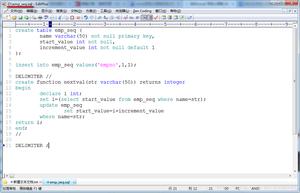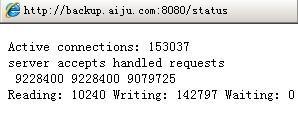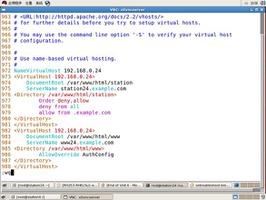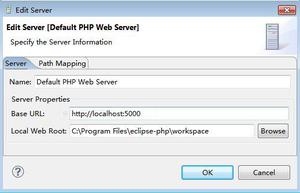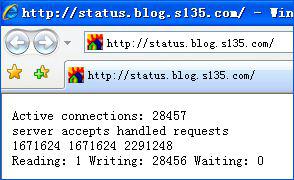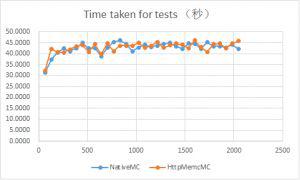设置@grant值时,如何访问“窗口”(目标页面)对象?
假设我正在使用以下网页:
<html><body>
<span id="click">click me</span>
<script>
var hello = function() {
alert('hello');
}
document.getElementById('click').addEventListener('click', function(e) {
hello();
});
</script>
</body>
</html>
我的Greasemonkey脚本是:
// ==UserScript==// @name My Script
// @include http://example.com/hello.html
// @version 1
// @grant none
// ==/UserScript==
window.hello = function() {
alert('goodbye');
}
在禁用Greasemonkey脚本的情况下,单击#click页面上的元素将显示“ hello”警报。启用脚本后,单击元素将显示“再见”警报。
很简单。hello网页中的功能已被Greasemonkey脚本中的功能替换。
现在,假设我要使用Greasemonkey API。当我将@grant值设置为’none’以外的有效值时(例如// @grant
GM_setClipboard)[这会导致Greasemonkey将脚本作为“内容脚本”运行,而不是像“
none”一样在页面范围内运行],Greasemonkey脚本无法执行工作。
window.hello 不再定位页面上的正确对象。
更换window.hello用unsafeWindow.hello看起来像它的工作,而是下面的错误是在JS控制台抛出:
错误:拒绝访问对象的权限
在@grant GM_setClipboard设置为目标并替换hello页面上的原始功能后,如何重写Greasemonkey脚本?
系统信息:
- Windows 7 64位
- Firefox 32.0
- Greasemonkey 2.2
回答:
当您设置任何@grant其他值时,Greasemonkey会激活其沙箱,而Greasemonkey2.0将彻底改变unsafeWindow处理。
现在,为了在目标页面范围内创建或覆盖变量,您必须从技术菜单中正确选择。例如:
To Read:
Target page sets: var foo = "bar";GM script can read: unsafeWindow.foo //– “bar”
Target page sets: var obj = {A: 1};GM script can read: unsafeWindow.obj //– Object { A: 1 }
这并不总是可能的。
To Call:
Target page sets: function func () {console.log ('Hi');}GM script can call: unsafeWindow.func() //– “Hi”
To Write/Set:
unsafeWindow.foo = "Apple";var gmObject = {X: "123"};unsafeWindow.obj = cloneInto (gmObject, unsafeWindow);
function gmFunc () {console.log ("Lorem ipsum");
//-- Can use GM_ functions in here! :)
}
unsafeWindow.func = exportFunction (gmFunc, unsafeWindow);
考虑以下HTML:
<button id="helloBtn">Say "Hello".</button>而这个JavaScript:
var simpleGlobalVar = "A simple, global var in the page scope.";var globalObject = {Letter: "A", Number: 2};
function simpleFunction () {
console.log ("The target page's simpleFunction was called.");
}
var sayHello = function() {
console.log ('Hello.');
}
document.getElementById ('helloBtn').addEventListener ('click', function () {
sayHello ();
} );
如果在该页面上安装并运行此Greasemonkey脚本:
// ==UserScript==// @name _Demonstrate accessing target-page variables with @grant values set
// @include http://fiddle.jshell.net/sepwL7n6/*/show/
// @require http://ajax.googleapis.com/ajax/libs/jquery/2.1.0/jquery.min.js
// @grant GM_addStyle
// ==/UserScript==
console.log ("*** Greasemonkey script start.");
$("body").append ('<div id="gmArea">Added by Greasemonkey:<p></p></div>');
$("#gmArea > p:first").append ('<button id="gmShow">Access select target-page variables and functions</button>');
$("#gmArea > p:first").append ('<button id="gmChange">Change javascript things in the target-page scope.</button>');
$("#gmShow").click ( function () {
//-- Access things from the target-page scope:
console.log ("----------------");
console.log ("==> simpleGlobalVar is: ", unsafeWindow.simpleGlobalVar);
console.log ("==> globalObject is: ", unsafeWindow.globalObject);
console.log ("==> Calling target's simpleFunction():");
unsafeWindow.simpleFunction ();
//-- WARNING! This next technique is not robust, but works in some cases.
console.log ("==> Calling target's button's click().");
unsafeWindow.document.getElementById ('helloBtn').click ();
} );
$("#gmChange").click ( function () {
this.disabled = true; //-- Can only click once.
unsafeWindow.simpleGlobalVar = "Simple var... Intercepted by GM!";
unsafeWindow.globalObject = cloneInto (gmObject, unsafeWindow);
unsafeWindow.sayHello = exportFunction (sayHello, unsafeWindow);
console.log ("==> Target page objects were changed.");
} );
var gmMessageStr = "Function... Intercepted by GM, but also can use GM_ functions!";
function sayHello () {
sayHello.K = (sayHello.K || 0) + 1;
console.log (gmMessageStr);
GM_addStyle ('body {background: ' + (sayHello.K % 2 ? "lime" : "white") + ';}');
}
var gmObject = {message: "Object overridden by GM."};
打开控制台并按下按钮,您将看到GM脚本能够读取和更改页面的变量和功能。
笔记:
- 这是所有 。
- 对于跨平台代码和某些复杂情况,可以改用脚本注入 。但是注入的代码不能直接访问
GM_函数。 - 请注意,这些技术仅适用于全局的javascript变量和函数。
以上是 设置@grant值时,如何访问“窗口”(目标页面)对象? 的全部内容, 来源链接: utcz.com/qa/430742.html

